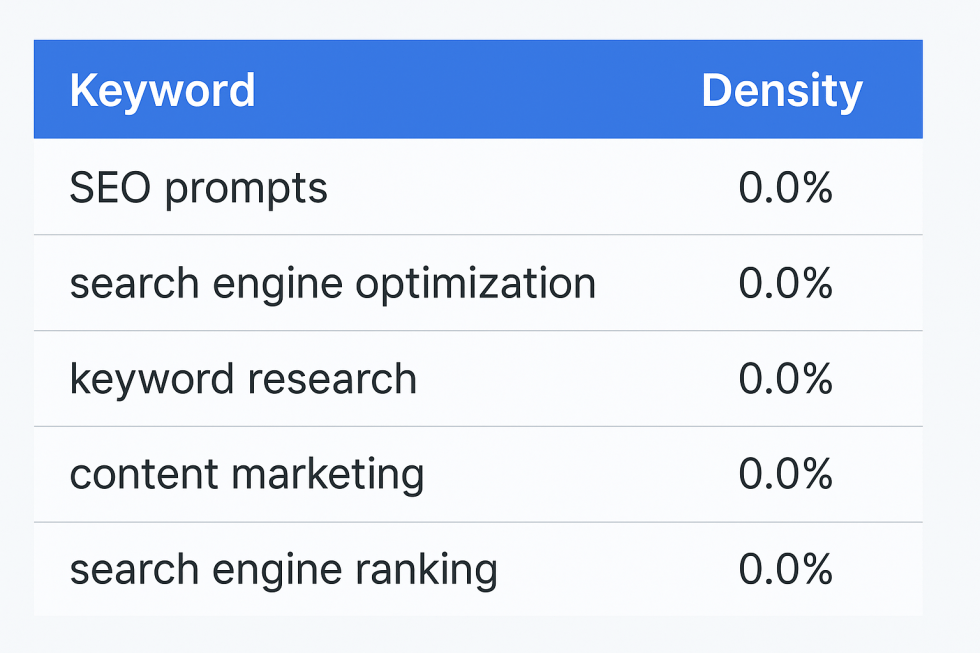
Effective website management ensures every element of your online presence performs reliably and drives growth by combining maintenance, optimization, and strategic content workflows. This guide delivers actionable steps to enhance functionality, security, and visibility, addressing common pain points like downtime, slow load speeds, and outdated pages. You’ll discover how to maintain a site with routine tasks, leverage technical SEO-1/">SEO best practices, develop a robust content strategy, monitor performance with analytics, adopt emerging trends, and select essential tools. By the end, you’ll master the core pillars—maintenance, technical SEO-1/">SEO, content management, performance analytics, advanced innovations, and tool selection —that underpin optimal website management.
What Is Website Management and Why Is It Essential?
Website management encompasses the ongoing processes to maintain, update, and improve a site’s functionality, security, performance, and content. Ensuring these tasks are handled methodically prevents downtime, strengthens user trust, and elevates search visibility through consistent upkeep and strategic enhancements. For example, scheduling monthly software updates stops vulnerabilities before they impact visitors and search rankings .
How Does Website Management Impact User Experience and SEO-1/">SEO?
Website management improves [BKThemes](https://bkeary1967.wordpress.com/2025/08/10/ target="_blank" rel="nofollow noopener">user experience by guaranteeing fast load times, intuitive navigation, and secure interactions, which collectively promote longer sessions and higher engagement. Consistent optimization of metadata, mobile responsiveness, and structured content also signals search engines to index pages more favorably, boosting organic visibility. Smooth site interactions lead directly into the need for precise maintenance routines.
What Are the Core Elements of Effective Website Management?
A comprehensive website management framework rests on three pillars:
- <span style="font-weight: 400;">Infrastructure upkeep to maintain hosting, domain, backups, and security protocols.</span>
- <span style="font-weight: 400;">Technical [SEO](https://bkthemes.design/seo)-1/">[SEO](https://bkthemes.design/seo)</a> to optimize crawlability, speed, and indexability.</span>
- <span style="font-weight: 400;">Content workflows that ensure pages remain relevant, accessible, and aligned with user intent.</span>
These elements work together to prevent broken links, support search visibility, and deliver up-to-date information, laying the groundwork for SEO-1/">SEO-a-strong-backlink-profile/">measurable business outcomes .
How Do Website Management Services Improve Business Goals?
Website management services align technical upkeep and strategic content with revenue objectives by reducing downtime, enhancing conversion pathways, and strengthening brand credibility. Proactive security updates protect customer data, while performance tuning increases conversion rates . Integrating analytics-driven insights ensures marketing spends drive continuous ROI improvements and supports scaling efforts.
What Are the Key Website Maintenance Tasks for Reliable Performance?
Reliable performance depends on a structured maintenance schedule covering backups, software updates, plugin checks, link audits , and security patches. Neglecting any task can introduce errors that degrade user trust and search rankings over time.
Before diving into task specifics, consider this table outlining frequency and impact. SEO off-page SEO-1/">SEO techniques .
| **Task** | **Frequency** | **Impact** |
| Full Website Backups | Weekly | Enables rapid recovery after failures |
| CMS and Plugin Updates | Monthly | Prevents compatibility issues and hacks |
| Broken Link Audits | Quarterly | Improves crawlability and UX |
| Security Patching | As vulnerabilities arise | Blocks exploit attempts |
Regularly performing these tasks maintains optimal functionality and establishes a reliable foundation for <a href="https://bkthemes.design/"https://bkthemes.design/seo">SEO-1/">SEO and user engagement.
How Often Should You Perform Website Backups and Updates?
Performing full backups weekly and updates monthly ensures you can restore a recent version with minimal data loss if issues occur. Weekly backups guard against data corruption, while monthly software updates patch known vulnerabilities and maintain compatibility. This cadence protects both content integrity and visitor trust.
What Are Best Practices for CMS and Plugin Management?
Maintaining a CMS and its extensions requires verifying compatibility in a staging environment before production deployment, deactivating unused plugins to reduce attack surface, and documenting version changes. For instance, testing updates on a duplicate site prevents downtime and avoids plugin conflicts that could break critical functionality .
How to Conduct Broken Link Audits and Fixes Efficiently?
Using automated crawlers to identify broken links lets you compile a prioritized list of 404 errors and redirect opportunities. After detection, implement 301 redirects for moved content, update internal links to correct URLs, and remove obsolete references. Efficient auditing restores smooth navigation, directly supporting SEO-1/">SEO indexing and user satisfaction.
Why Are Security Updates and Patching Critical for Website Health?
Security updates close vulnerabilities that hackers exploit to inject malware, steal data, or launch distributed attacks. Applying patches promptly stops zero-day threats and safeguards reputation. A secure site upholds customer confidence, which in turn sustains organic visibility by avoiding search penalties associated with compromised content .
How Can Technical SEO-1/">SEO Best Practices Enhance Website Management?
Technical SEO-1/">SEO fortifies the website’s infrastructure for efficient crawling, indexing, and ranking, directly contributing to management objectives of visibility and performance. Addressing core metrics and optimization layers transforms a site into a search-friendly asset that supports SEO-1/">SEO-tips/">growth .
What Are the Most Effective Site Speed Optimization Techniques?
Improving site speed involves minifying CSS and JavaScript, enabling browser caching, compressing images in modern formats, and leveraging a content delivery network (CDN) to serve assets geographically closer to users. Together, these approaches reduce load times, improve Core Web Vitals scores, and increase conversion rates.
Brown, L., "The Impact of Website Speed on User Behavior and SEO-1/">SEO," Journal of Digital Marketing, (2023)
Website Speed Optimization Techniques
Website speed optimization, including techniques like image compression and CDN usage, significantly improves user experience and search engine rankings. Studies show that faster loading times correlate with higher conversion rates and improved search engine visibility, which is crucial for business success.
How Does Mobile-First Indexing Affect Website Management?
Mobile-first indexing means search engines primarily evaluate the mobile version of a site for ranking. Ensuring responsive design, touch-friendly navigation, and lightweight mobile assets prevents ranking drops and delivers consistent user experiences across devices. Mobile optimizations dovetail into performance monitoring strategies .
What Is Structured Data and How Does It Improve Search Visibility?
Structured data uses standardized markup to define entities and relationships—such as products, articles, or events—enabling search engines to display rich results like snippets and carousels. For example, marking up a “HowTo” guide can trigger a SEO-1/">SEO-campaign/">step-by-step snippet , driving higher click-through rates.
How to Optimize XML Sitemaps and Robots.txt for Better Crawling?
Maintaining an accurate XML sitemap with only indexable URLs and referencing it in robots.txt ensures search engines discover and prioritize essential pages. Excluding non-critical directories from crawling reduces server load and focuses crawl budgets on valuable content, boosting overall index efficiency .
What Is a Content Management Strategy and How Does It Support Website Management?
A content management strategy defines how to audit, create, optimize, and govern site content to maintain relevance, coherence, and SEO-1/">SEO alignment. By mapping workflows and responsibilities, teams can deliver consistent messaging and maximize SEO search performance .
Smith, J., "Content Strategy for SEO-1/">SEO: Best Practices and Case Studies," SEO-1/">SEO Trends, (2024)
Content Management Strategy and SEO-1/">SEO Alignment
A well-defined content management strategy, including content audits and keyword research, is essential for maintaining content relevance and improving search engine rankings. Regular content updates and optimization, based on data-driven insights, can significantly boost organic traffic and user engagement.
How to Perform Content Audits and Refresh Existing Pages?
Content audits involve evaluating page performance metrics—traffic, engagement, and keyword rankings—then updating underperforming pages with fresh insights, improved keywords, and enriched media. For instance, republishing a guide with updated statistics and interactive visuals restores authority and boosts organic SEO-1/">SEO-a-strong-backlink-profile/">traffic .
What Are Keyword Research Best Practices for Content Strategy?
Effective keyword research blends quantitative data—search volume and competition—with semantic analysis of user intent and related topics. Prioritizing long-tail phrases that address specific questions ensures content resonates with targeted audiences and earns visibility for niche queries. SEO-1/">SEO-a-strong-backlink-profile/">backlink profile
How to Write Effective Alt Text for Images to Boost Accessibility and SEO-1/">SEO?
Effective alt text clearly describes the image’s content and context using concise language, integrating target keywords naturally. For example, SEO enhances screen reader usability and improves image search relevance.
What Are the Steps to Establish a Content Workflow and Governance?
A robust workflow defines roles for ideation, drafting, review, and publication, supported by editorial calendars, style guides, and version control. Governance policies set publishing standards, review cadences, and update triggers to SEO-1/">SEO-link-building-strategy/">ensure content stays accurate and on-brand over time.
How to Optimize Website Performance and Use Analytics for Continuous Improvement?
Combining performance optimization with SEO-1/">SEO/">data-driven monitoring fosters a culture of ongoing enhancement. By tracking key metrics and adjusting strategies, teams can proactively address bottlenecks and capitalize on user behavior insights.
What Are Core Web Vitals and How Do They Affect User Experience?
Core Web Vitals—Largest Contentful Paint (LCP), First Input Delay (FID), and Cumulative Layout Shift (CLS)—measure loading speed, interactivity, and visual stability. Improving these metrics increases user satisfaction and earns SEO-1/">SEO-link-building-strategy/">search ranking boosts , reinforcing management goals of performance excellence.
How to Set Up and Use Google Analytics for Website Monitoring?
Implementing Google Analytics with proper tracking codes, conversion goals, and event tracking allows you to monitor traffic sources, user behaviors, and funnel drop-offs. Custom dashboards highlight trends, enabling quick responses to SEO declining page views or spikes in bounce rates.
Which Website Monitoring Tools and KPIs Are Essential for Managers?
Monitoring tools like uptime trackers, performance analyzers, and error alert systems help teams maintain reliability. Key KPIs include uptime percentage, average page load time, bounce rate, and goal conversion rate. Tracking these indicators signals when to initiate maintenance or optimization tasks.
How Can UX Testing Identify and Resolve Usability Issues?
UX testing methods—A/B tests, heatmaps, and session recordings—reveal navigation friction, content misunderstandings, and form drop-offs. By iterating on design elements based on user feedback, teams can streamline interactions and elevate overall satisfaction.
What Are the Latest Trends and Advanced Tools in Website Management?
Emerging trends—AI automation, headless architectures, voice search , and personalization—are reshaping how teams manage and optimize sites. Embracing these innovations delivers competitive advantages through improved agility and user engagement.
How Are AI-Powered Website Management Tools Transforming the Industry?
AI tools automate routine tasks such as content suggestions, performance anomaly detection, and security scans, freeing teams to focus on strategy. Predictive analytics anticipate traffic fluctuations and recommend proactive optimizations, enhancing both SEO-1/">SEO-campaign/">efficiency and decision quality.
What Is Headless CMS and How Does It Benefit Website Management?
A headless SEO-1/">SEO-campaign/">CMS decouples content storage from presentation, delivering content via APIs to any front-end framework. This flexibility accelerates development, supports omnichannel experiences, and simplifies scaling by separating content governance from design constraints.
How to Implement Voice Search Optimization Strategies?
Optimizing for voice queries involves targeting conversational, question-based keywords, structuring content with clear headings, and using natural language patterns. Providing succinct answers within featured snippets increases chances of voice assistants reading your content to users.
What Role Does Personalization Play in Modern Website Management?
Personalization tailors content, offers, and interface elements based on user behavior, location, or demographics. By dynamically adjusting page elements—such as recommended articles or product suggestions—sites can improve engagement and SEO-1/">SEO-campaign/">conversion rates through relevant experiences.
Which Website Management Tools Are Essential for Effective Site Control?
Selecting the right tools simplifies complex tasks, boosts workflow efficiency, and centralizes monitoring , ensuring site managers can maintain robust performance without excessive overhead.
What Are the Benefits of Using Content Management Systems Like WordPress?
WordPress offers intuitive editing, extensive plugin ecosystems, and theme customizations that accelerate content updates and design tweaks. Its large community and built-in <a href="https://bkthemes.design/"https://bkthemes.design/seo">SEO-1/">SEO features support both beginners and advanced users in maintaining consistent page quality.
How Do SEO-1/">SEO Tools Like Semrush and Google Search Console Support Management?
SEO-1/">SEO platforms provide keyword tracking, backlink analysis, and site audit reports, while Search Console offers crawl diagnostics, index coverage data, and performance insights. Together, they help identify optimization opportunities and monitor the impact of SEO technical and content changes.
What Performance Testing Tools Help Optimize Website Speed and Stability?
Tools such as GTmetrix, Lighthouse, and WebPageTest simulate page loads under various conditions, highlighting opportunities for resource compression, caching, and code optimization . Regular testing ensures that caching rules and server configurations deliver consistent speed improvements.
How Can Automation Tools Simplify Website Maintenance Tasks?
Automation solutions schedule backups, run security scans, deploy updates, and generate performance reports without manual intervention. By orchestrating routine jobs, teams minimize human error, maintain reliable schedules, and SEO focus on strategic initiatives rather than repetitive chores.
Continuous, systematic website management unites maintenance, optimization, and strategy to deliver seamless user experiences and measurable business growth. By implementing these best practices—covering routine tasks, technical SEO-1/">SEO, content workflows, analytics, advanced trends, and targeted tooling—teams can ensure their sites remain secure, efficient, and competitive. Trust in this holistic approach to unlock the full potential of your online presence .
📧 Stay Updated
Get the latest web development tips and insights delivered to your inbox.




